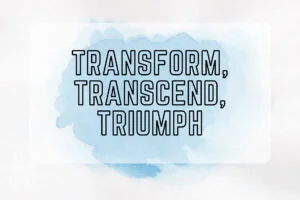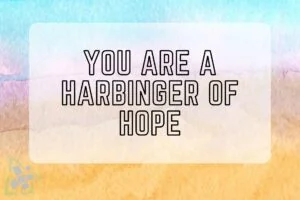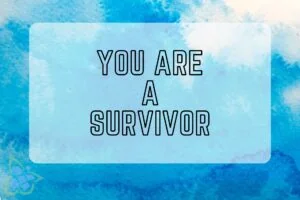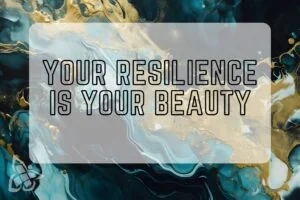Safe, Medically Approved Treatment | Covered by Medical Aid
Drug detox in South Africa is the first critical step in treating substance dependence. These medically supervised programmes help individuals withdraw safely from drugs like alcohol, opioids, cocaine, or benzodiazepines. Detox is often required before entering rehab and typically takes place in licensed private facilities or clinics. Most leading rehab centres in South Africa offer detox services that qualify for coverage by medical aid schemes such as Discovery, Bonitas, and Momentum. With the right clinical support, detox prepares the body and mind for long-term recovery.
🔹 What Is Drug Detox?
Medical drug detox is the medically managed process of clearing harmful substances from the body. It is essential for people who have become physically dependent on drugs or alcohol. Without proper care, withdrawal can be painful, dangerous, or even life-threatening—especially with substances like benzodiazepines, opioids, or alcohol.
In South Africa, detox is conducted in registered inpatient treatment centres with access to medical staff, emergency support, and medication-assisted interventions when necessary.
🔹 What Happens During Detox?
A typical drug detox programme in South Africa includes:
Medical screening and assessment
To determine the level of substance use, risk factors, and the most appropriate detox protocol.24/7 clinical supervision
Nurses and doctors monitor symptoms, hydration, and vitals throughout the withdrawal period.Medication support
To ease symptoms like anxiety, insomnia, muscle pain, or nausea. This may include short-term use of benzodiazepines, antipsychotics, or tapering agents (e.g. Buprenorphine for opioids).Nutritional and emotional support
Balanced meals, vitamins, and optional psychological counselling help stabilise patients during detox.
🔹 How Long Does Detox Last?
The length of a detox programme depends on:
The substance used (e.g. heroin vs cannabis)
Duration and intensity of use
Physical health and co-occurring conditions
Typical duration:
3 to 5 days for alcohol or stimulants
7 to 10+ days for opioids, benzos, or polydrug use
After detox, patients are usually referred to a longer-term rehab programme for therapy and relapse prevention.
🔹 Does Medical Aid Cover Drug Detox in South Africa?
Yes — most medical aids in South Africa do cover detox under the Prescribed Minimum Benefits (PMBs) if the patient meets certain clinical criteria.
✅ What You Need:
A treatment plan from a registered facility
Pre-authorisation from your scheme
Motivation letter or diagnosis from a registered healthcare provider (e.g. psychiatrist, GP)
Covered by schemes like:
Discovery Health, Bonitas, Momentum, Medihelp, Fedhealth, GEMS and more.
📌 Not all detox centres are accredited — always check that your provider is licensed and meets HPCSA/DSD standards.
🔹 Who Needs Detox?
Detox is typically required for:
Alcohol addiction
Heroin, fentanyl, or opioid painkiller dependence
Cocaine or methamphetamine use (when cravings or crash symptoms are severe)
Benzodiazepine dependence (Valium, Xanax, Ativan)
Cannabis dependence (less common, but can cause withdrawal)
🔹 What Happens After Detox?
Detox is only the first step in recovery. Once stabilised, patients should enter a comprehensive addiction rehab programme that includes:
Cognitive Behavioural Therapy (CBT)
Trauma therapy (if needed)
Family counselling
Group therapy
Aftercare planning
Without continued support, the risk of relapse is high — particularly within the first 30 days after detox.
🧠 FAQs About Drug Detox in South Africa
What is drug detox?
Drug detox is the process of clearing substances from the body while managing withdrawal symptoms in a safe, medically supervised setting.
How do I know if I need detox?
If you experience withdrawal symptoms (shaking, sweating, anxiety, nausea) when stopping drugs or alcohol, you likely need detox.
Is drug detox dangerous?
Yes, if done without supervision. Some substances, like alcohol or benzos, can cause seizures or heart complications during withdrawal.
Does Discovery Health pay for detox?
Yes — Discovery and other medical aids cover detox if it’s deemed clinically necessary and is performed at an accredited facility.
Can I detox at home?
Medically unsupervised detox is dangerous and not recommended. Always seek professional help, especially for alcohol or opioid withdrawal.
Why Johannesburg Detox Rehab?
Johannesburg offers high-end private detox centres, many of which are affiliated with international rehab facilities. This global recognition reflects local standards of care. Patients benefit from modern facilities, qualified medical and therapy teams, and structured aftercare planning, ensuring a strong foundation for long-term recovery.
There are a considerable number of addiction treatment centres in South Africa that offer drug detoxification, both private and state funded. It is vital to exercise care in selecting the detox facility which best suits the needs of the suffering addict. The overall quality of care at private drug detox clinics in South Africa is much better than the state run rehab’s. It’s also important to understand the basics of the beginning of the addiction recovery process as this will help you to choose the best addiction clinic for your loved ones needs. The first stage of treatment for drug addiction or dependency is a well managed and medically supervised detoxification process. This can vary in length of time according to the substance involved and how long the patient has been addicted to that specific drug. The detox process must take place at a registered addictions treatment centre. Most of these South African addiction centres provide in-patient or residential rehab.

Alcoholism is a part of our society that we cannot simply ignore. It effects not…

South Africa has many world class rehabilitation centres to choose from. In fact they’re so…

At WeDoRecover.com, we offer to connect you to the best treatment services for drug and…
Why Detox Alone Isn’t Enough
Detox is only the first phase of treating substance use disorders. While it clears the body of drugs or alcohol, it does not address the underlying psychological, behavioural, or emotional patterns that fuel addiction. True recovery requires further treatment through individual counselling, group therapy, trauma support, and family involvement.
The Importance of Aftercare
After detox and primary rehab, a structured aftercare plan helps clients stay on track. This may include outpatient counselling, sober living environments, relapse prevention tools, and participation in support groups. A strong aftercare programme dramatically reduces the risk of relapse, especially in the first 90 days post-discharge.
Get Help Today
If you or a loved one is struggling with addiction, seeking professional help early can change the outcome. South Africa offers a range of accredited private rehab centres with qualified clinical teams who understand the complexities of detox and recovery.
Medical Supervision During Drug Detox
The detoxification process often involves the use of a reducing regime of prescription drugs and requires professional medical supervision to ensure patient safety. Detox is central to the start of addiction recovery and is often the first clinical step before treatment planning begins.
Tailored Treatment After Detox
Following successful detoxification, addiction clinics in South Africa typically design individualised treatment plans tailored to the patient’s specific needs. Most registered rehab centres in South Africa adopt the view that addiction is a disease—one that can be managed with proper care and support.
These facilities also emphasise complete abstinence from mood- or mind-altering substances and encourage core changes in behaviour, attitudes, and belief systems to support long-term recovery.
Understanding Addiction as an Illness
Rehab programmes help patients understand the true nature of addiction and how it affects every part of their lives. Although addiction cannot be “cured,” it can be lived with positively through daily practices and structured therapeutic support.
South African rehabs have gained international recognition for their standard of care—especially during the detox phase—and are attracting clients from across the globe.
The Role of Counselling and Family Therapy
Like detox, primary treatment is usually short-term, intense, and based on the 12-Step Minnesota model. Most reputable facilities in South Africa offer:
Individual counselling
Family conferences (Conjoints)
Dedicated family education programmes
Families are taught how to support recovery rather than enable relapse. This includes avoiding behaviours like “walking on eggshells,” hiding alcohol, or catering to the addict’s demands.
Therapeutic Groups and Denial Breakdown
Registered detox centres in South Africa use structured group therapy to help addicts process the emotional wreckage of their past. These groups aim to dismantle the “denial system” that allows people to rationalise continued use of drugs or alcohol.
This group work is essential to achieving long-term sobriety and forms part of every quality rehab programme post-detox.
Why Detox Alone Isn’t Enough
Without follow-up counselling and therapy, detox alone rarely results in lasting recovery. Long-term success depends on addressing the mental and emotional patterns that drive addiction.
Specialist groups often address co-occurring issues such as:
Grief, trauma, and loss
Co-dependency
Eating disorders
Gambling and compulsive behaviours
Sex and relationship issues
Lectures, Assignments, and Life Skills Training
After detox, South African rehabs provide a range of recovery tools such as:
Formal lectures on addiction and recovery
Relapse prevention planning
Written assignments to reinforce therapy
Life skills and socialisation support
Physical and spiritual development planning
This work only begins once the patient has completed full detox and can engage mentally and emotionally with the programme.
Integration Into 12-Step Fellowship
Quality South African rehabs encourage early participation in 12-Step meetings during treatment. This introduces patients to ongoing peer-based recovery frameworks and supports them beyond residential care.
Discharge Planning and Aftercare
A hallmark of reputable facilities is a thorough discharge and aftercare planning process. Aftercare ensures that the patient maintains their gains after treatment and remains supported throughout early recovery.
The Role of Detox in Long-Term Success
All components of recovery—therapy, education, relapse prevention—depend on successful detox. Once physically stabilised, patients become more mentally clear and emotionally receptive to the work required for long-term change.
Completing a drug detox in South Africa gives patients the opportunity to start again—equipped with the tools, support, and mindset needed for sustainable recovery.
📚 Related Resources
- How Much Does Rehab Cost in South Africa?
- Does Medical Aid Cover Rehab in South Africa?
- Medically Supervised Detox
- Sedative Addiction Treatment & Rehab Programs
- Overcome Methylphenidate (Ritalin) Addiction
- Overcome Darvocet Addiction
- SABC Medical Aid Rehab Cover in South Africa
- Does Discovery Medical Aid Cover Addiction Treatment?
- Medical Schemes PMB Rules

Doctors and healthcare providers play a important role in preventing medication addiction. Through responsible prescribing,…

The search for sound addiction advice by the family or friends of an addicted person…

Addictions Counsellors Here’s Part One and Part Three of this series. Within the first 24…
Founded in 2008, WeDoRecover has evolved from an advisory service for addiction treatment into a comprehensive provider of care, following its 2019 merger with Changes Addiction Rehab in Johannesburg. Specialising in connecting patients to top-tier addiction treatment centers in the UK, South Africa and supporting individuals in recovery world wide.